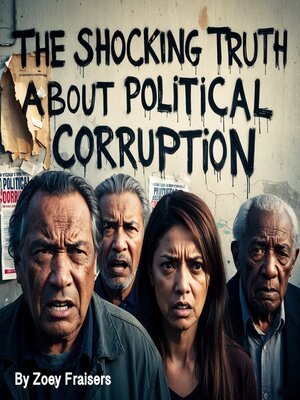
Sign up to save your library
With an OverDrive account, you can save your favorite libraries for at-a-glance information about availability. Find out more about OverDrive accounts.
Find this title in Libby, the library reading app by OverDrive.



Search for a digital library with this title
Title found at these libraries:
| Library Name | Distance |
|---|---|
| Loading... |
Political corruption is a pervasive issue that has existed for centuries, shaping the course of governments and societies worldwide. It manifests in various forms, from bribery and fraud to nepotism and abuse of power. Regardless of the system of governance, corruption erodes trust, distorts policies, and undermines democratic principles. While many assume corruption is limited to authoritarian regimes, it is also deeply embedded in democratic institutions, where influence and money often dictate political decisions.
The roots of corruption can be traced back to the earliest civilizations, where leaders sought personal gain at the expense of their people. Throughout history, political scandals have exposed the extent of corruption within governments, from financial embezzlement to electoral fraud. These cases serve as stark reminders of how unchecked power can lead to widespread deception and exploitation. Corruption is not only a moral failure but a structural issue that allows those in power to manipulate systems designed to serve the public.
Beyond historical examples, the impact of corruption is far-reaching. It weakens economies by diverting public funds into private hands, leaving essential services such as healthcare, education, and infrastructure underfunded. It fuels inequality, as the wealthy and well-connected benefit from corrupt dealings while the average citizen suffers. When corruption becomes the norm, public trust in institutions erodes, leading to political apathy, civil unrest, and, in extreme cases, the collapse of governments.







